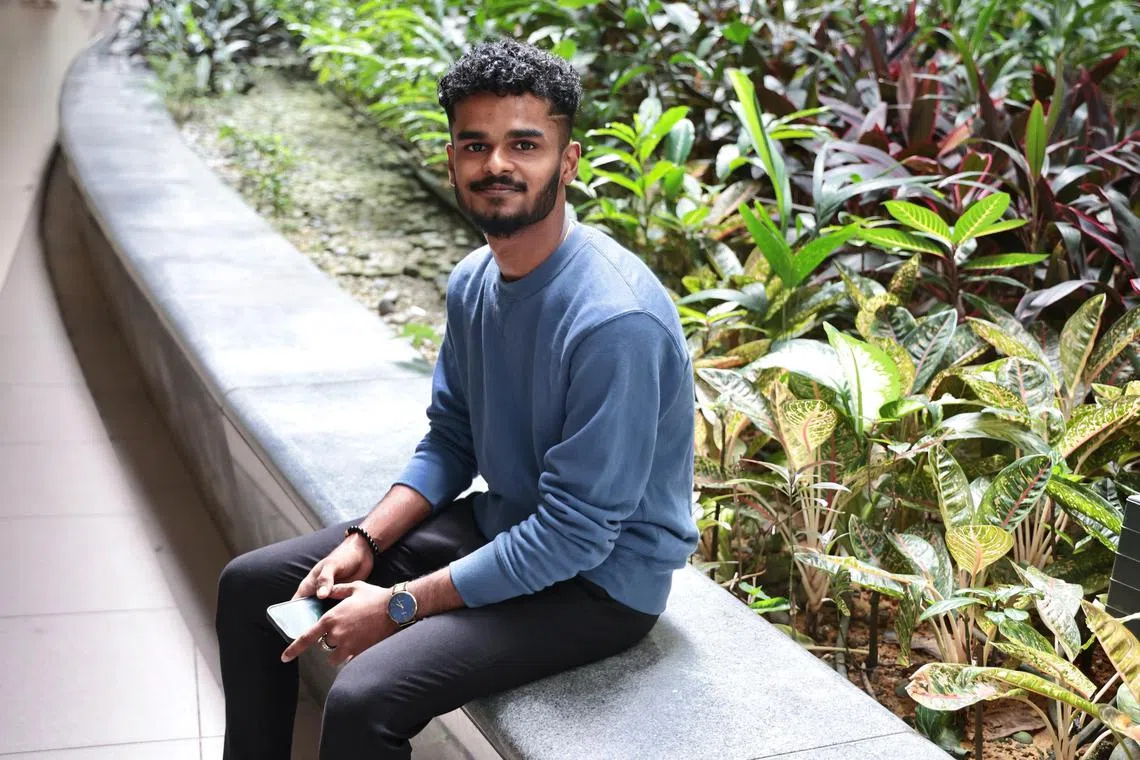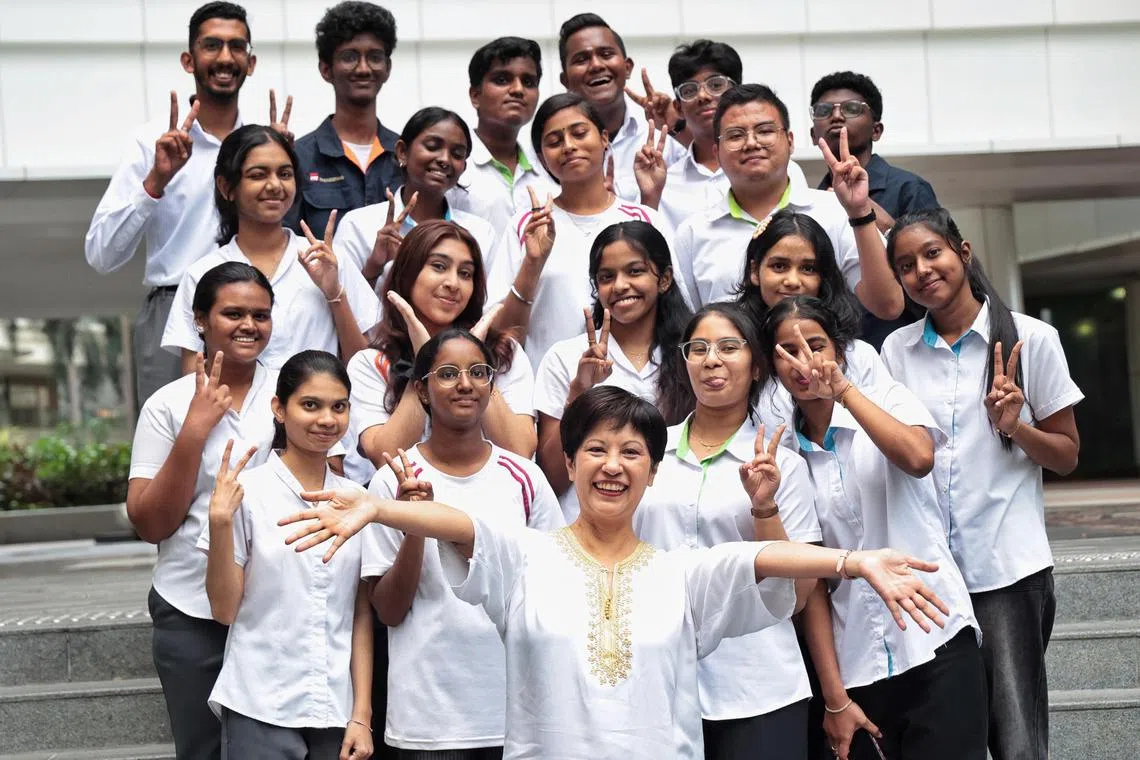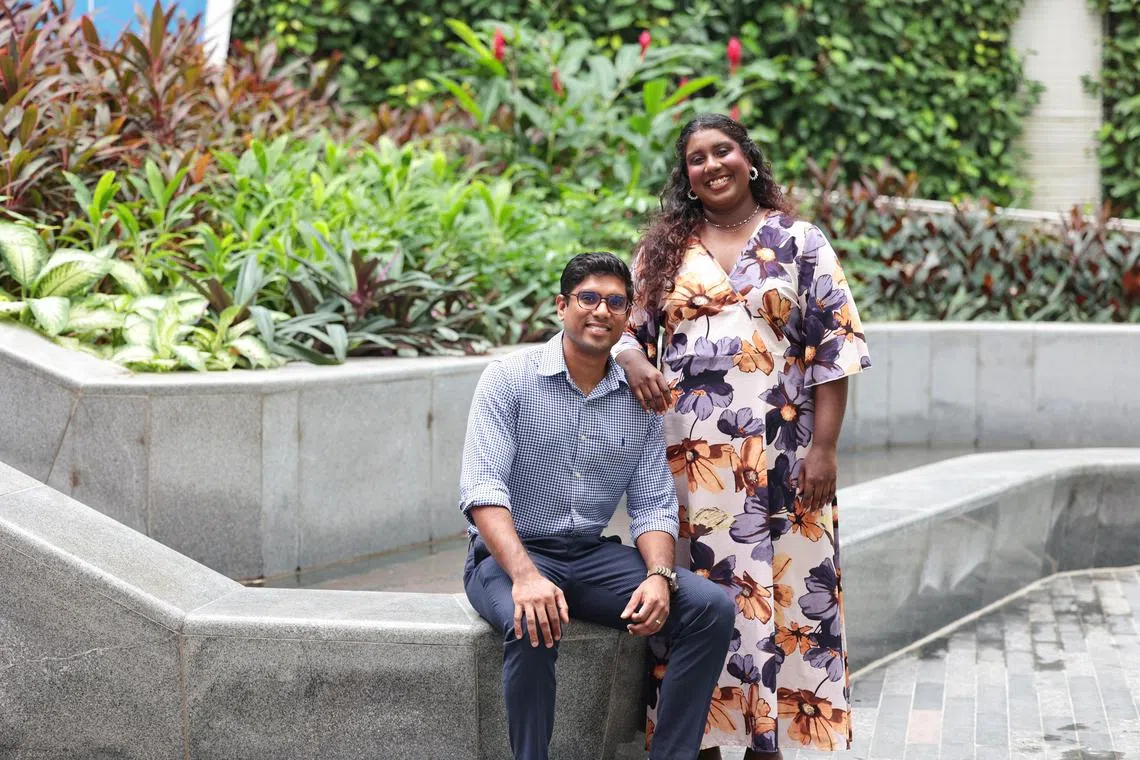85% more beneficiaries supported by Sinda schemes since eligibility widened
Sign up now: Get tips on how to help your child succeed

ITE student Ameerjan Sahul Hassan, 18, now has more time to study and relax since receiving the Sinda ITE Allowance.
ST PHOTO: HESTER TAN
SINGAPORE – Institute of Technical Education (ITE) student Ameerjan Sahul Hassan used to work part-time after school as an aircraft interior cleaner at Changi Airport four days a week.
The 18-year-old now works less often as he qualifies to receive the Sinda ITE Allowance since the Singapore Indian Development Association (Sinda) broadened its eligibility criterion in January for several of its programmes.
The self-help group revised its per-capita income criterion from $1,000 to $1,600.
With the $150 per month he receives from Sinda, Ameerjan, who is studying for a Nitec in aerospace machining technology, said he now has more time to study and relax.
“I used to end school at 4pm, work at 6pm, and reach home at 11pm,” he added.
He is one of 2,855 new beneficiaries of Sinda’s financial and social assistance schemes following the widening of the criterion.
In the second quarter of 2024, these schemes had 6,208 beneficiaries, up from 3,353 in the same period in 2023 – an 85 per cent increase.
Sinda president Indranee Rajah said: “With an increased per-capita income of $1,600, we will be able to help a lot more families. Even if your family circumstances may be tight, it’s okay because Sinda is here to help you. ITE itself has a lot of bursaries and assistance which covers many things.
“But sometimes there may be gaps. If there are gaps, come to Sinda and we will definitely see how we can help you.”
Ms Indranee, who is also Minister in the Prime Minister’s Office and Second Minister for Finance and National Development, was speaking at the ITE Youth Dialogue 2024 held at ITE College Central.
The dialogue was co-organised by Sinda and ITE to highlight the importance of doing well in the ITE pathway and to redefine success beyond academic achievement.
Ms Indranee said: “Success does not mean getting only a particular type of job. Success is about being able to be happy with yourself, to know that you’re growing, supporting your family, having a great life experience and good career progression.”
She highlighted the ITE Progression Award (IPA), a new government initiative announced in the 2024 Budget, as one way ITE students can have better career-progression prospects.
The award aims to narrow the wage gap between the starting salaries of ITE graduates and graduates from polytechnics and autonomous universities.
It gives ITE graduates aged 30 and below financial incentives of up to $15,000 to pursue a diploma in ITE, any local polytechnic, Nanyang Academy of Fine Arts (Nafa) or LaSalle College of the Arts.

Ms Indranee Rajah, Second Minister for Finance and National Development, at the ITE Youth Dialogue with some ITE students.
ST PHOTO: HESTER TAN
Replying to students at the dialogue who raised concerns about the stereotype of the academic pathway of ITE students, Ms Indranee said: “Increasingly in the world, skills matter.
“Skills are a combination of theoretical knowledge and application. Technical education is in very high demand. There is demand for the courses at ITE. Somewhere out there in the real world, somebody wants you, somebody wants your skills.
“ITE education should not be thought of as ‘Oh, not bad’. You have a great education foundation here. It’s just a question of what you make of it.”

ITE alumni Mahendran Anbalagan (left) and Mathu Kumar, a brand and reputation programme manager at Maker Lab, were panellists at the dialogue.
ST PHOTO: HESTER TAN
Among the dialogue panellists was ITE alumna Mathu Kumar, who emphasised to ITE students the importance of self-improvement and surrounding oneself with encouraging friends who will push them to greater heights.
The 28-year-old, who is now a brand and reputation programme manager at marketing consultancy Maker Lab, said: “I like how the Government is focusing on upskilling ITE students and moving them forward to getting a diploma at a polytechnic.”
After graduating from ITE in 2015, Ms Kumar went on to get a diploma in mass communications from Nanyang Polytechnic and a degree in business management from the Singapore Management University.
She said: “I wish I had the opportunity to get the IPA back when I was in ITE.”


